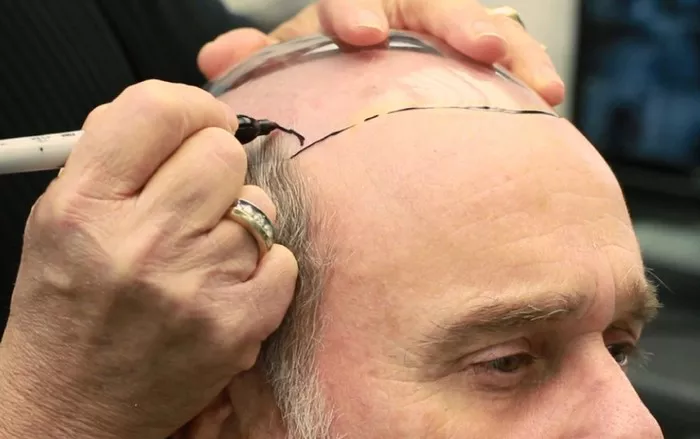In a world where luscious locks are often deemed a symbol of health and vitality, hair loss can be a disheartening experience. While genetics, hormonal imbalances, and lifestyle factors all play a role in hair loss, emerging research suggests that a deficiency in a crucial mineral – zinc – may be an overlooked contributor. In this comprehensive guide, we will delve into the intricate relationship between zinc deficiency and hair loss, exploring the scientific evidence, symptoms, and solutions to help you maintain a fuller, healthier mane.
Understanding Zinc’s Role
Zinc is an essential trace element that plays a crucial role in various biological processes. It is a cofactor for numerous enzymes involved in DNA synthesis, cell division, and protein synthesis. Zinc also supports the immune system by promoting the production and function of immune cells. Additionally, it plays a role in wound healing, taste and smell perception, and maintaining healthy skin and hair. Zinc deficiency can lead to a range of health issues, including impaired growth, weakened immune function, and skin problems. A balanced diet that includes zinc-rich foods like meat, seafood, nuts, and whole grains is vital for maintaining optimal health and well-being.
The Zinc-Hair Loss Connection
Zinc deficiency has been associated with hair loss. Zinc is essential for maintaining healthy hair follicles and promoting hair growth. It plays a role in DNA synthesis, cell division, and protein production, all crucial processes for hair follicle function. Low zinc levels may disrupt these processes, leading to hair thinning or even hair loss. However, excessive zinc intake can also have adverse effects. Therefore, it’s essential to maintain a balanced zinc intake through a well-rounded diet or supplements if necessary. Consulting a healthcare professional can help determine if zinc deficiency is a factor in hair loss and the appropriate course of action.
The Mechanism Behind Zinc and Hair Health
Here are the mechanisms behind zinc and hair health:
1. Hair Follicle Miniaturization:
Zinc deficiency can disrupt the hair growth cycle by accelerating the process of hair follicle miniaturization. This leads to thinner, weaker hair strands and eventually hair loss.
2. Telogen Effluvium:
Zinc deficiency can trigger a condition called telogen effluvium, where a large number of hair follicles enter the resting phase simultaneously, causing noticeable hair shedding.
3. Altered Hormonal Balance:
Zinc plays a role in regulating hormones like testosterone, which can affect hair growth when imbalanced. Zinc deficiency may lead to hormonal fluctuations, contributing to hair loss.
Diagnosing Zinc Deficiency and Its Impact on Hair Loss
Here’s how to diagnose zinc deficiency:
1. Consult a Professional:
If you suspect zinc deficiency may be contributing to your hair loss, consult a healthcare provider. They can perform blood tests to assess your zinc levels.
2. Dietary Assessment:
Evaluate your diet to ensure you are consuming zinc-rich foods like red meat, poultry, nuts, and whole grains. A well-balanced diet can aid in preventing deficiency.
3. Supplementation:
In cases of severe deficiency, healthcare professionals may recommend zinc supplements. However, it’s essential to consult a healthcare provider before starting any supplementation regimen.
Nourishing Your Hair from Within: Zinc-Rich Foods
The following are zinc-rich foods:
1. Lean Protein Sources:
Incorporate lean meats like chicken and turkey into your diet. These are not only rich in zinc but also provide essential amino acids for hair growth.
2. Nuts and Seeds:
Almonds, cashews, and pumpkin seeds are excellent sources of zinc. Snack on these to boost your mineral intake.
3. Whole Grains:
Whole grains like quinoa and oats are not only nutritious but also supply your body with zinc to promote hair health.
4. Dairy Products:
Dairy foods like yogurt and cheese can contribute to your daily zinc intake while providing calcium for overall health.
See Also: Stopping Hair Fall After Weight Loss: Effective Strategies
The Bottom Line: Addressing Zinc Deficiency for Hair Health
In the quest for luscious locks and vibrant hair, it’s vital not to overlook the role of zinc deficiency. Scientific evidence suggests that a lack of this essential mineral can indeed contribute to hair loss. Therefore, it is crucial to maintain a balanced diet rich in zinc, consult healthcare professionals when needed, and adopt healthy lifestyle practices to promote optimal hair health.
In conclusion, while zinc deficiency is not the sole cause of hair loss, it is an essential piece of the puzzle. By addressing potential deficiencies, you can support your hair’s growth and overall health. Remember, the journey to healthier, fuller hair begins from within.


